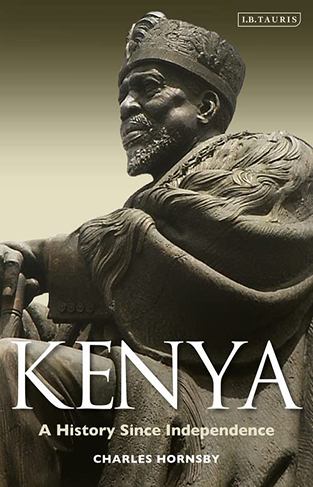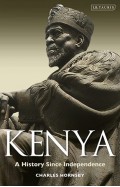Kenya: A History Since Independence
By: Charles Hornsby
-
Rs 2,250.00
Due to constant currency fluctuation, prices are subject to change with or without notice.
Since independence from Great Britain in 1963, Kenya has survived five decades as a functioning nation-state, holding regular elections; its borders and political system intact and avoiding open war with its neighbours and military rule internally. It has been a favoured site for Western aid, trade, investment and tourism and has remained a close security partner for Western governments. However, Kenya's successive governments have failed to achieve adequate living conditions for most of its citizens; violence, corruption and tribalism have been ever-present,and its politics have failed to transcend its history. The decisions of the early years of independence and the acts of its leaders in the decades since have changed the country's path in unpredictable ways, but key themes of conflicts remain: over land, money, power,economic policy, national autonomy and the distribution of resources between classes and communities. While the country's political institutions have remained stable, the nation has changed, its population increasing nearly five-fold in five decades. But the economic and political elite's struggle for state resources and the exploitation of ethnicity for political purposes still threaten the country's existence. Today, Kenyans are arguing over many of the issues that divided them 50 years ago. The new constitution promulgated in 2010 provides an opportunity for national renewal, but it must confront a heavy legacy of history. This book reveals that history.
Since independence from Great Britain in 1963, Kenya has survived five decades as a functioning nation-state, holding regular elections; its borders and political system intact and avoiding open war with its neighbours and military rule internally. It has been a favoured site for Western aid, trade, investment and tourism and has remained a close security partner for Western governments. However, Kenya's successive governments have failed to achieve adequate living conditions for most of its citizens; violence, corruption and tribalism have been ever-present,and its politics have failed to transcend its history. The decisions of the early years of independence and the acts of its leaders in the decades since have changed the country's path in unpredictable ways, but key themes of conflicts remain: over land, money, power,economic policy, national autonomy and the distribution of resources between classes and communities. While the country's political institutions have remained stable, the nation has changed, its population increasing nearly five-fold in five decades. But the economic and political elite's struggle for state resources and the exploitation of ethnicity for political purposes still threaten the country's existence. Today, Kenyans are arguing over many of the issues that divided them 50 years ago. The new constitution promulgated in 2010 provides an opportunity for national renewal, but it must confront a heavy legacy of history. This book reveals that history.
Zubin Mehta: A Musical Journey (An Authorized Biography)
By: VOID - Bakhtiar K. Dadabhoy
Rs 840.00 Rs 1,050.00 Ex Tax :Rs 840.00
The Origins of Political Order From Prehuman Times to the French RevolutioN
By: Francis Fukuyama
Rs 3,895.00 Ex Tax :Rs 3,895.00
Manning Up: How the Rise of Women Has Turned Men into Boys
By: Kay Hymowitz
Rs 995.00 Ex Tax :Rs 995.00
The Obama Syndrome: Surrender At Home War Abroad
By: Tariq Ali
Rs 1,036.00 Rs 1,295.00 Ex Tax :Rs 1,036.00
The Quest For Meaning: Developing A Philosophy Of Pluralism
By: Tariq Ramadan
Rs 1,116.00 Rs 1,395.00 Ex Tax :Rs 1,116.00
The Pakistan US Conundrum Jihadists The Military And The People The Struggle For Control
By: Yunas Samad
Rs 1,116.00 Rs 1,395.00 Ex Tax :Rs 1,116.00
An Enemy We Created: The Myth Of The Taliban Al Qaeda Merger In Afghanistan 19702010
By: Alex Strick van Linschoten
Rs 5,250.00 Ex Tax :Rs 5,250.00
WikiLeaks: Inside Julian Assanges War on Secrecy
By: David Leigh & Luke Harding
Rs 850.00 Ex Tax :Rs 850.00
No similar books from this author available at the moment.
No recently viewed books available at the moment.
Zubin Mehta: A Musical Journey (An Authorized Biography)
By: VOID - Bakhtiar K. Dadabhoy
Rs 840.00 Rs 1,050.00 Ex Tax :Rs 840.00














-120x187.jpg?q6)





-120x187.jpg?q6)



-120x187.jpg?q6)



